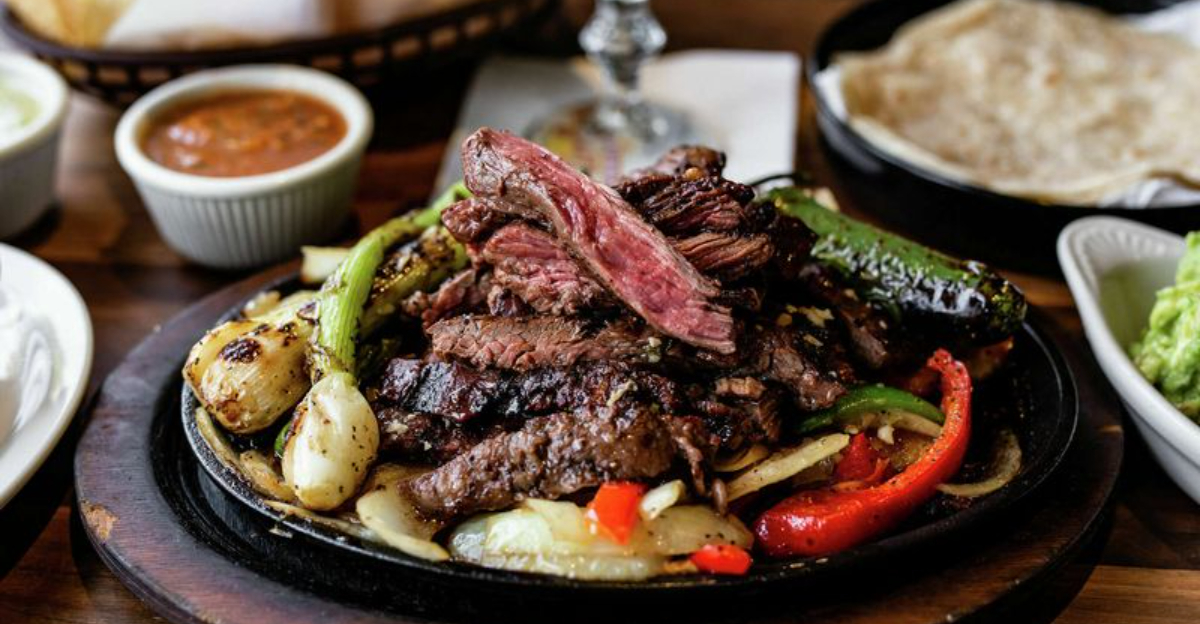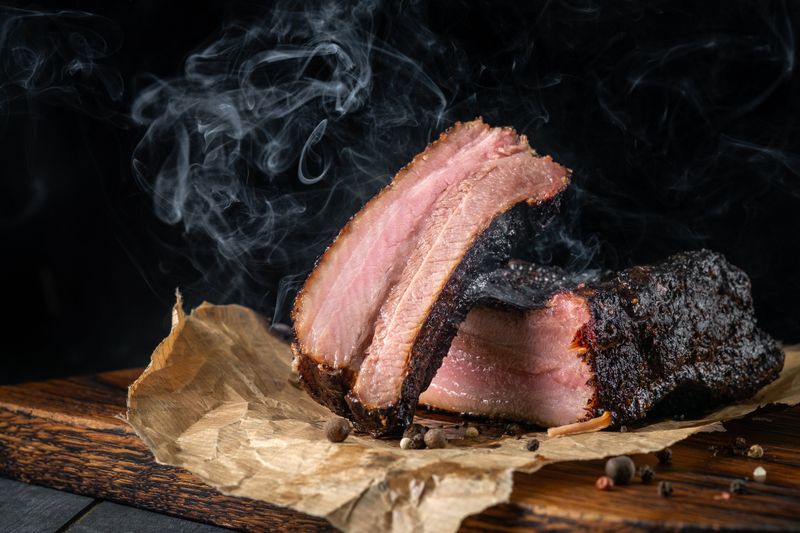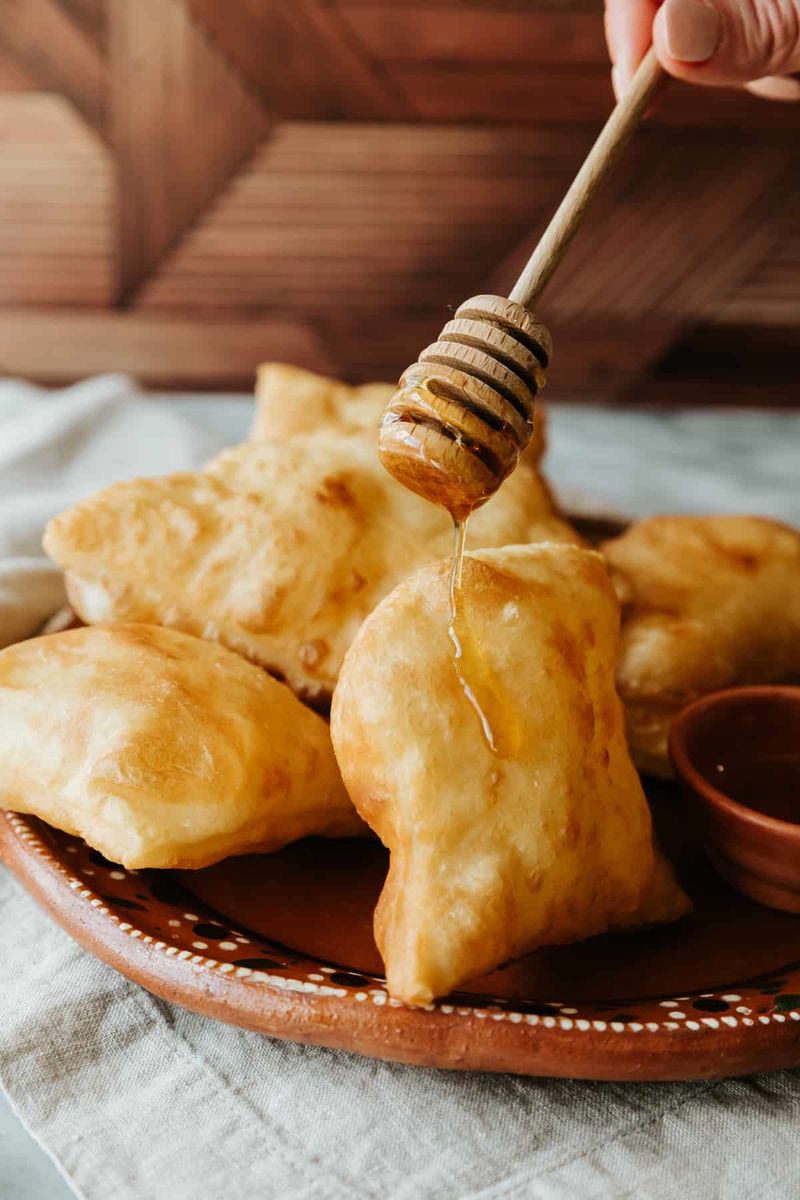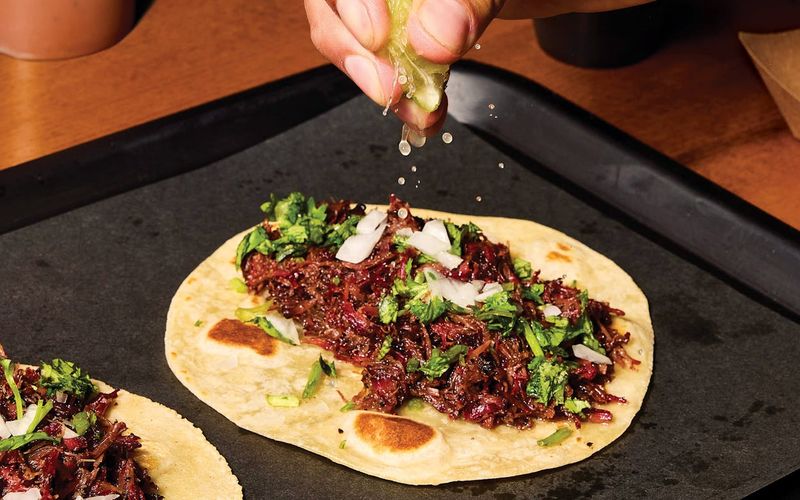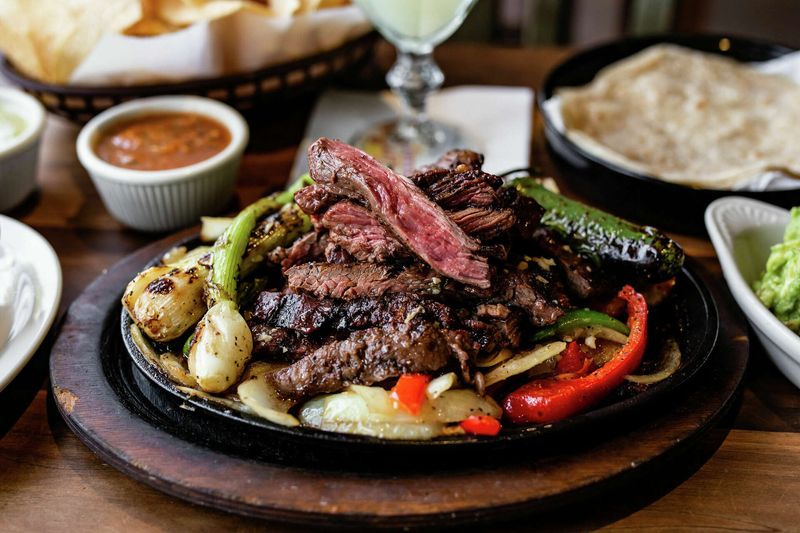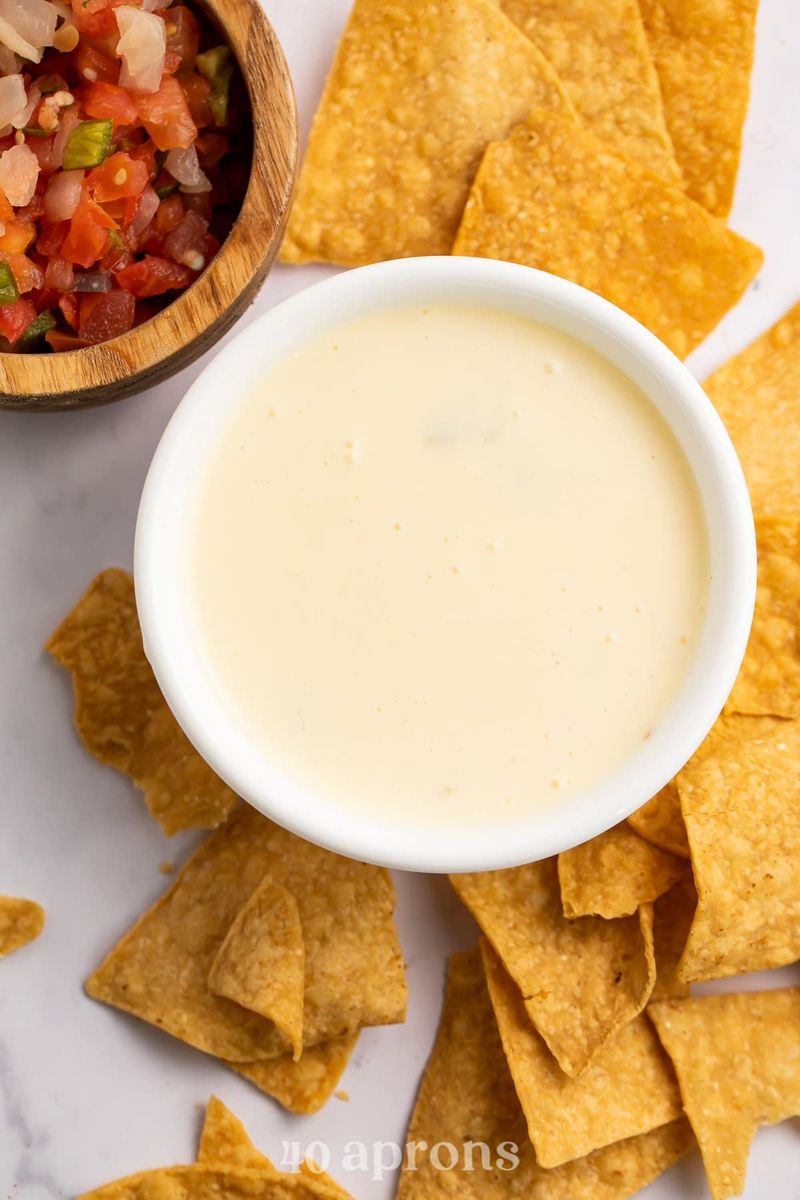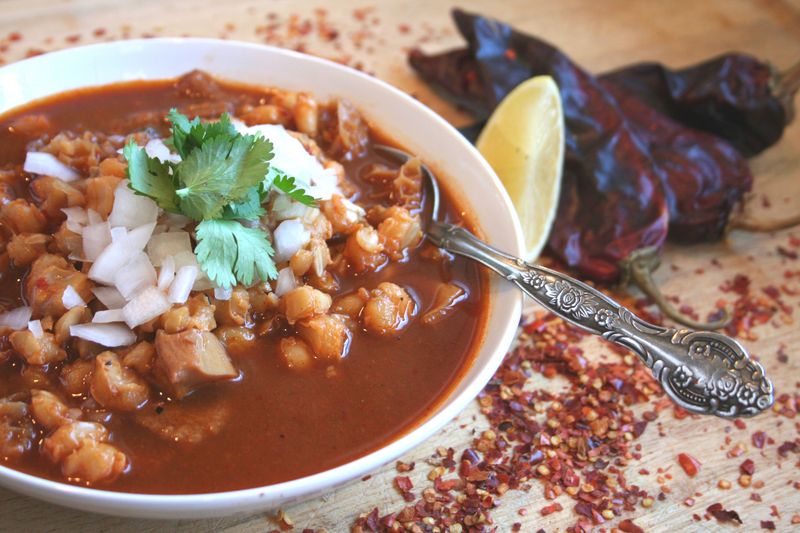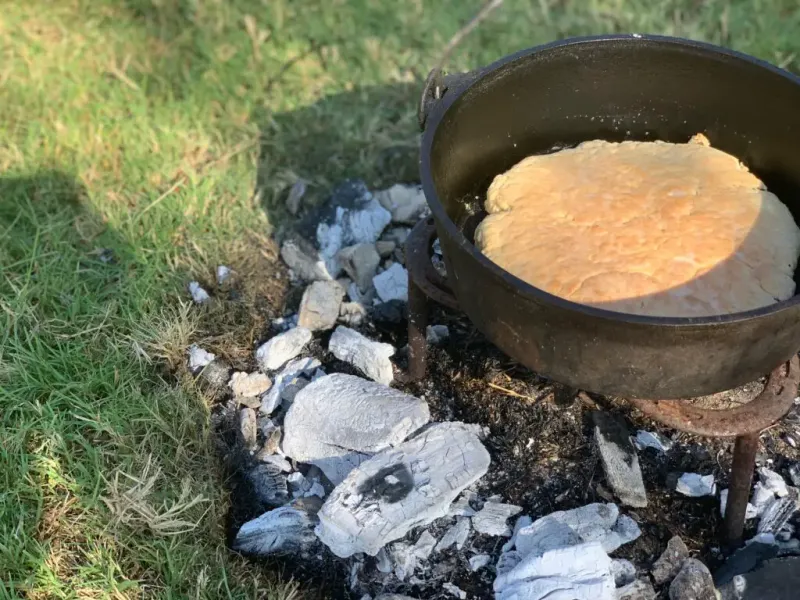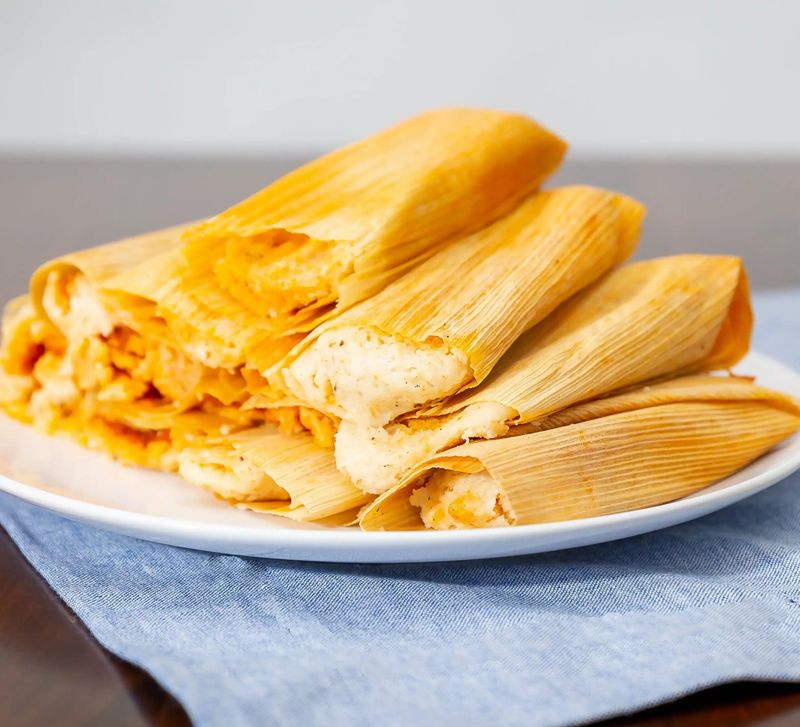Texas has a food culture all its own, blending smoky BBQ traditions with Mexican flavors and Czech pastries. But if you want to sound like a true Texan, you need to pronounce these dishes correctly. Mispronounce a word at the taco shop or BBQ joint, and locals will know instantly you’re not from around here. Master these nine tricky names, and you’ll blend right in with the crowd.
Brisket
In Texas BBQ circles, saying BRIS-kit with a crisp “k” is a rite of passage. Outsiders often soften that “k” into BRIS-set, which immediately marks you as a novice. Local pitmasters bristle at it.
Texas smoked brisket is central to Texan cuisine, featuring long-smoked, marbled, and deeply flavored meat. Saying it right may just earn you a nod instead of a raised eyebrow. Getting the pronunciation down shows respect for the craft and the hours spent tending the smoker.
Kolache and Klobasnek
Texans borrowed this from Czech immigrants, but the pronunciation shifts. Outsiders commonly say KO-la-chee, but locals lean toward kuh-LAH-chee or koh-LAH-chee. The emphasis on that middle syllable is key.
Also, savory versions called klobasnek, which are sausage or meat filled, are often mislabeled “kolache,” but purists distinguish them. Getting both names right shows you understand the heritage behind these beloved breakfast treats that fill bakery cases across the state.
Sopapilla
That sweet fried pastry is so-pa-PEE-yuh, not so-pa-PILL-uh. Outsiders often misplace the “i” in the second syllable. The correct pronunciation gives respect to its Spanish roots, especially for that double-“l” sound which is a soft “y.”
When you order dessert at a Tex-Mex restaurant, saying it properly shows you’ve been around the block. These puffy, golden treats are drizzled with honey and sprinkled with cinnamon, making them the perfect ending to any meal.
Barbacoa
Tourists often say bar-buh-COA, but Texans call it bar-buh-KOH-ah with emphasis on the middle. This slow-cooked, often cow-head or cheek-based meat is a Texan Sunday breakfast staple.
Get the name wrong, and locals might quietly wince. The tender, flavorful meat has been cooked low and slow for hours, absorbing spices and developing rich taste. Pronouncing it correctly honors the tradition and the families who wake up early to prepare it for weekend gatherings.
Fajita
Hollywood taught many “fa-JEE-ta,” but Texans say fa-HEE-ta because the “j” is soft, true to Spanish. Say it like the locals do, and your server might smile before you even place your order.
Originally made from skirt steak, fajitas arrive at your table on a sizzling hot plate with peppers and onions. The aroma fills the restaurant, and everyone turns to look. Getting the pronunciation right means you’re ready to enjoy this Tex-Mex classic the way it was meant to be experienced.
Queso
This cheese dip deserves better than KWAY-so. Texans simplify it to KEH-so, dropping the “w” entirely. When you pronounce it “KEH-so,” you show you know more than half the table.
Whether it’s white queso or the yellow variety loaded with ground beef and jalapeños, this dip is everywhere in Texas. Restaurants serve it as an appetizer, and it disappears fast. Nail the pronunciation, and you’ll fit right in with the crowd reaching for chips and diving into the creamy, melted goodness.
Menudo
Often mis-said as MEN-oo-doh, the emphasis in Texas is meh-NEW-doh. This hearty tripe soup is a labor of love, simmering for hours with hominy, chile peppers, and spices. Say the name right, and you’ll sound like someone who’s earned Sunday breakfast.
Families gather around steaming bowls of menudo after late nights or early church services. The rich broth warms you from the inside out. Pronouncing it correctly shows respect for the tradition and the time invested in making this comforting dish.
Pan de Campo
This rustic cowboy bread is often mispronounced pan de KAM-po. Locals prefer PAN deh KAHM-po. It goes by simple ingredients, cooked over coals, so let your pronunciation be just as unadorned.
Cowboys made this bread on the trail using flour, baking powder, salt, and water. Today, ranchers and campers still prepare it outdoors. The crusty outside and soft inside make it perfect for soaking up beans or stew. Say it right, and you honor the hardworking heritage of Texas ranch life.
Tamale (Tamal)
In Texas, you say tah-MAH-ley, never “TAM-uh-lee.” Also, the Spanish singular is “tamal,” but many locals forgive that slip if your pronunciation is on point. These masa-wrapped bundles are a holiday tradition and a weekend treat.
Families spend hours spreading masa, adding filling, and wrapping corn husks. The steaming process fills the kitchen with warmth and anticipation. Getting the name right shows you appreciate the effort behind every bite and the cultural significance of this beloved comfort food.
